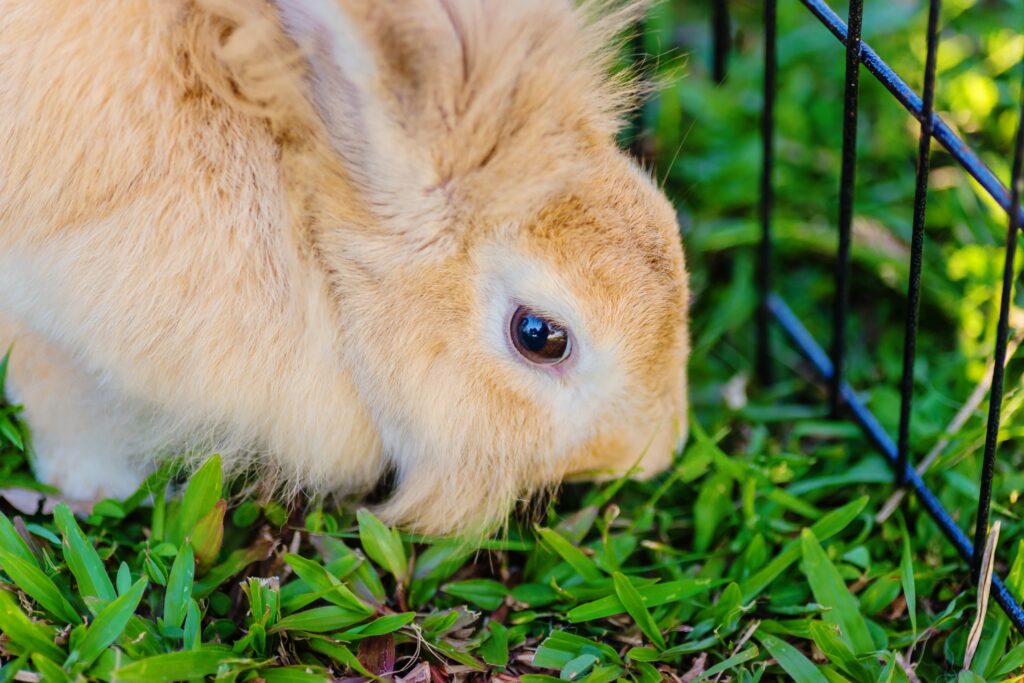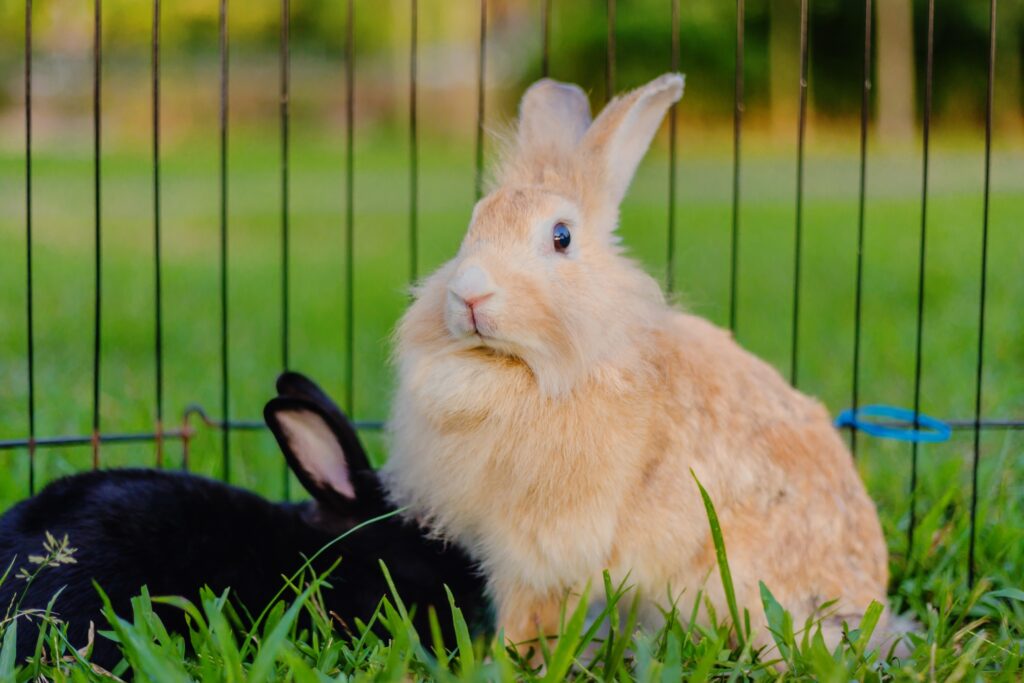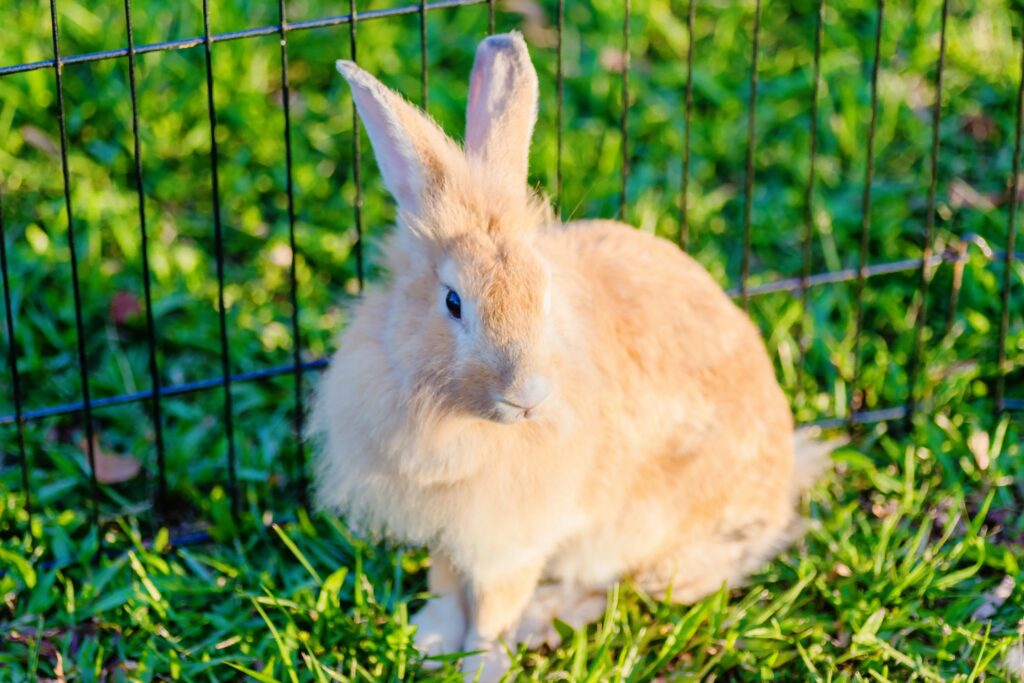Are Lionhead Rabbits Easy to Care for? A Comprehensive Guide
Lionhead rabbits are relatively easy to care for, making them popular pets among families and rabbit enthusiasts. However, providing them with suitable habitat, proper diet, and regular grooming is essential to keep them healthy and happy.

Lionhead rabbits have a distinct mane that requires thorough grooming. Brushing their fur at least once a week helps prevent mats and knots and protects them from potentially ingesting loose hair. Additionally, they need a spacious, clean living environment and a well-balanced diet of high-quality hay, pellets, fresh vegetables, and water to thrive. Overall, with consistent care, Lionhead rabbits can be wonderful pets suitable for both first-time and experienced rabbit owners.
Housing
When it comes to housing a lionhead rabbit, there are a few things to consider to ensure the bunny has a safe and comfortable home. The two main options for housing are indoor and outdoor setups.
Indoor Housing
Indoor housing is a popular choice for lion head rabbits, especially those living in areas with extreme weather conditions. A suitable indoor enclosure should be spacious enough for the rabbit to move around comfortably and have enough room for a litter box, food, and water bowls.
Using a safe and comfortable bedding material for the rabbit’s enclosure is important. Softwood bedding, such as cedar or pine, should be avoided as it can cause respiratory problems. Instead, opt for recycled bedding or a soft towel.
Lionhead rabbits are social animals and enjoy the company of other rabbits. If you plan on keeping more than one rabbit, ensure the enclosure is large enough to accommodate all of them comfortably.
Outdoor Housing
Outdoor housing can be a good option for lionhead rabbits, but it requires careful consideration of the weather and predator protection. The enclosure should be large enough for the rabbit to move around and have a sheltered area to protect them from the sun, wind, and rain.
The enclosure should also be secure and protected from predators such as dogs, cats, and birds of prey. A wire mesh with small gaps can cover the enclosure and prevent predators from getting in.
It is important to provide the rabbit with fresh water and food daily and to clean the enclosure regularly to prevent the buildup of waste and bacteria.
Feeding
Feeding a lionhead rabbit is an essential part of their care routine. A healthy diet will keep them happy and active. This section will cover the diet and water requirements of lionhead rabbits.

Diet
Lionhead rabbits should be fed a diet high in fiber and low in fat. They require a diet rich in hay, fresh greens, and little pellets. A healthy diet for a lionhead rabbit should consist of the following:
- Timothy Hay: This should always be available to the rabbit.
- Fresh greens: These should be given to the rabbit daily. Suitable greens include kale, spinach, and lettuce.
- Pellets: The rabbit should be given a limited number of pellets daily. The pellets should be about 1/8 cup per pound of body weight.
- Fruits and vegetables: These should be given to the rabbit in moderation, about 2-3 times a week. Suitable fruits and vegetables include carrots, bell peppers, and cucumbers.
Talking to a vet about the right diet for your lionhead rabbit is essential. They can advise on the right amount of food for your rabbit based on weight and age.
Water
Lionhead rabbits require access to fresh, clean water at all times. The water should be changed daily to ensure it is clean and bacteria-free. A water bottle rather than a bowl is essential to prevent the rabbit from spilling the water.
In conclusion, feeding a lionhead rabbit is not difficult. A healthy diet rich in hay, fresh greens, and little pellets is essential for their well-being. Access to fresh, clean water is also crucial for their health. By following these guidelines, you can ensure that your lionhead rabbit remains healthy and happy.
Grooming
Lionhead rabbits have thick, fluffy coat that requires regular grooming to keep them healthy and happy. Grooming helps prevent hairballs and other digestive issues but also helps build a bond between the owner and the rabbit.
Brushing
Brushing is an essential part of lionhead rabbit grooming. It helps remove loose fur, tangles, and mats from their coat. A slicker brush with no metal teeth, a wire-pin brush, and a wide-toothed comb are some of the grooming tools that may be useful when grooming your lionhead rabbit.
Brushing should be done daily, especially during shedding season. It is essential to be gentle while brushing to avoid hurting the rabbit’s skin. Brushing also helps prevent hair from getting caught on furniture and other items, which could cause pain.
Bathing
Lionhead rabbits do not need frequent bathing as they clean themselves regularly. However, if necessary, a bath can be given. It is essential to use only rabbit-safe shampoo and lukewarm water while bathing. Avoid getting water in the rabbit’s ears or nose.
After bathing, the rabbit should be dried thoroughly with a towel or a hairdryer set on low heat. Keeping the rabbit warm and dry after bathing is essential to prevent health issues.
Nail Trimming
Lionhead rabbits’ nails grow continuously and need to be trimmed regularly. Long nails can cause discomfort and pain while walking and may get caught on things, causing injury.
Nail trimming should be done every 4-6 weeks, depending on the rabbit’s nail growth rate. It is essential to use sharp and clean nail clippers and avoid cutting the quick, which is the pink part of the nail that contains blood vessels.
In conclusion, grooming is an essential part of lionhead rabbit care. Regular brushing, occasional bathing, and nail trimming are necessary to keep them healthy and happy. It is essential to be gentle while grooming and use only rabbit-safe products to avoid health issues.
Healthcare
When it comes to caring for a lionhead rabbit, healthcare is an important aspect to consider. This section will cover preventative care and common health issues.

Preventative Care
Preventative care is crucial to maintaining the health of a lionhead rabbit. Here are some tips to keep in mind:
- Schedule regular check-ups with a rabbit-friendly veterinarian at least once a year
- Vaccinations are important to protecting your rabbit’s health; speak to the veterinarian about what is appropriate for your area.
- Provide your rabbit with a healthy diet that includes fresh water and large amounts of hay.
- Keep your rabbit’s living area clean and free of any hazards.
- Monitor your rabbit’s behavior and contact a veterinarian if you notice any changes.
Common Health Issues
Lionhead rabbits are generally healthy animals, but like any other pet, they can experience health issues. Here are some common health issues to be aware of:
- Dental problems: Lionhead rabbits have teeth that grow continuously, so it’s important to provide them with plenty of hay to chew on and schedule regular dental check-ups with a veterinarian
- Gastrointestinal stasis: This is a condition where a rabbit’s digestive system slows down or stops working altogether. Various factors, including a poor diet, stress, and lack of exercise, can cause it. Signs of gastrointestinal stasis include a decrease in appetite, lethargy, and a decrease in fecal output. Contact a veterinarian immediately if you suspect your rabbit has gastrointestinal stasis.
- Skin problems: Lionhead rabbits have long, thick fur that requires regular grooming to prevent matting and skin infections. Be sure to brush your rabbit’s fur regularly and contact a veterinarian if you notice skin problems like redness or irritation.
Behavior
Lionhead rabbits are generally friendly, playful, and social, making them great family pets. However, like all animals, they have their personalities and may vary in their behavior.
Personality
Lionheads have a reputation for being docile and calm, but some individuals can be more timid or aggressive. Spending time with your rabbit is important to get to know its personality and build a bond with it.
Lionheads are also known for being curious and active, so they need plenty of opportunities for exercise and exploration. Providing toys, tunnels, and other stimulating objects can help entertain your rabbit and prevent boredom.
Training
Like all rabbits, lion heads can be litter trained with patience and consistency. Providing a designated litter box and rewarding your rabbit for using it can help establish good habits.
It’s also important to handle your lion head regularly from a young age to get it used to being touched and picked up. This can make it easier to groom and care for your rabbit as it gets older.
Lionheads can make great pets for those willing to give them the attention and care they need.
Conclusion
Caring for a lionhead rabbit requires a moderate amount of effort, but it can be a rewarding experience for pet owners who are willing to invest the time and energy. Providing a healthy diet, a clean living environment, and plenty of attention and exercise are essential for the well-being of these adorable bunnies.
Lionhead rabbits are relatively easy to care for but have some unique needs. Their long, fluffy coats require regular grooming to prevent matting and tangling. They also need plenty of space to run and play, as well as toys and other forms of enrichment to keep them mentally stimulated.